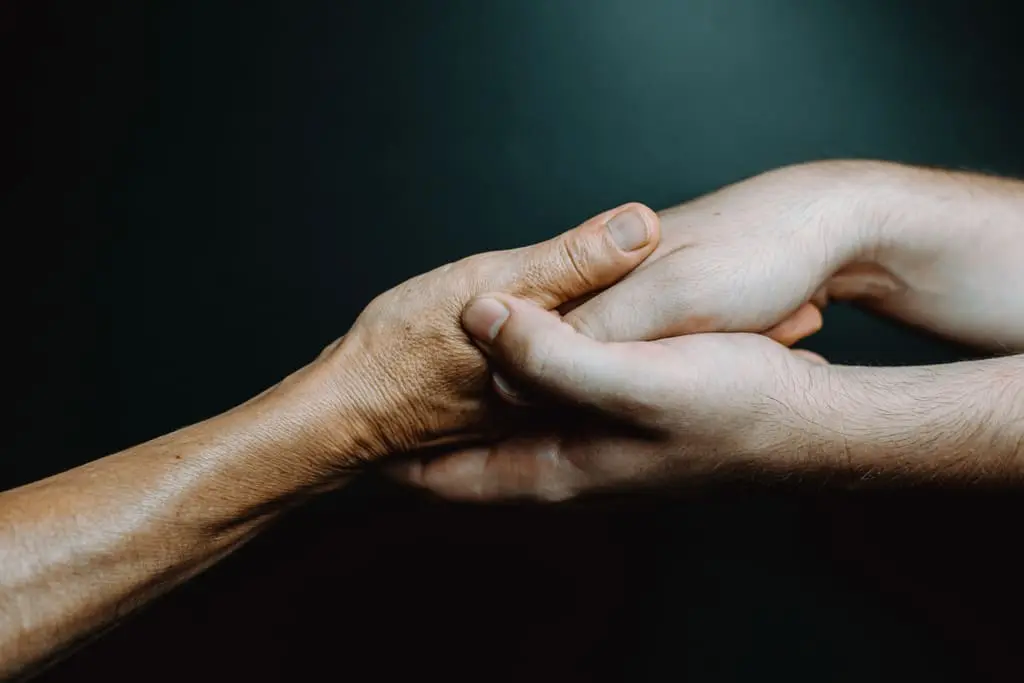What Is a Clinician?
A clinician is a healthcare professional qualified to provide principal care to the individuals they serve.
The primary function of the clinician is to help and support people with complex care needs to live quality and rewarding lives and meet their physical and mental health needs.
A clinician can be relied on by people with complex care needs to work in partnership with their families and other medical professionals to deliver all-encompassing and integrated care.
For example, a person with mental health challenges might need additional assistance navigating the local community and daily life activities and may need clinicians to understand and meet their needs and help them achieve their goals.
Most importantly, as a clinician, you will support people to live the best quality of life possible by providing humanised and person-centred care.

Role of a Clinician
The role of a clinician is to provide compassionate and high-quality care to people with health challenges. As a clinician, you might have to work in people’s homes, residential settings or hospitals. Additionally, clinicians may deliver medical assistance alone or work as a team with other healthcare providers and people’s families.
A clinician’s job is to provide personalised care to people with different health needs and promote support to improve overall well-being. Common clinician jobs and titles are registered nurses and healthcare support workers.
As a clinician, you need to take care of the overall health and well-being of a person, including:
- Keep records of the health and well-being of the person you serve
- Cooperate with other medical experts to provide the highest quality care
- Provide person-centred care and support with compassion and empathy
- Manage the care plans in cooperation with social workers when necessary, scheduling meetings and organising multidisciplinary rounds
- Provide companionship
- Monitor the person’s medication therapy and recovery progress, including supporting people with mental health care needs
- Provide emotional comfort and encouragement to every person
Responsibilities of a Clinician
Clinician jobs come with a range of responsibilities and problem-solving skills necessary for successful healthcare practices and outcomes. Clinicians and other medical professionals must perform extensive research on a person’s medical history and use medical equipment.
A clinician job description depends on what type of clinician someone is. A nurse, nurse practitioner and healthcare support worker have different responsibilities.
For example, depending on the expertise field, clinicians may give diagnostic tests, check and observe vital signs, and provide further care plans. Clinicians work with the person they support to design a person-centred and tailored treatment plan based on their unique needs and preferences.
Key responsibilities of a clinician include:
- Providing person-centred care and support
- Providing diagnostic information to the family or caregiver of the individual
- Developing treatment plans
- Providing medical interventions and support whenever needed
- Constant cooperation with other health professionals, such as a doctor, general practitioner (GP), and nurse
- Responsible for the well-being of the person they support
- Keeping regular and accurate records of an individual’s physical and mental health
- Adhering to ethical and legal standards
- Continuous improvement in knowledge and skills
- Provide emotional comfort and compassionate support to every individual
It’s important to note that specific responsibilities may vary depending on the clinician’s field of expertise, such as nurses, healthcare support workers, or medical assistants.
Clinician Qualifications
The type of qualification needed to become a clinician depends on the exact job role. There is a range of different clinician jobs requiring different qualifications.
Nurses need expertise in the relevant field, such as an undergraduate degree, master’s degree, and Registered Nurse certification. Likewise, a healthcare support worker may need a Health and Social Care diploma.
Here’s a list of the most common clinician qualifications necessary for providing comprehensive care:
- Bachelor’s degree in medicine, nursing or physiotherapy
- In some cases, clinicians need to have a master’s degree in nursing or a related expertise
- Having the required hours of supervision in clinical experience, internship or private practice
- Diploma in Health and Social Care
- Having a license for practice in the related field
- Continuous education and regular licence renewal
- Following up-to-date training
Additional to education, clinicians need to possess a set of personal skills and traits required in health and social care.
Additional skills:
- Good listening and communication skills
- Empathy and compassion
- Critical thinking
- Time management
- Fast response and self-control
- Flexibility and adaptability
- Capability to work in complex care settings
- Capability to work with people of all ages
- Case management and documentation skills
- Strong nursing skills
Why Become a Clinician?
Being a clinician is the most rewarding career path that will make you feel professionally and personally fulfilled. Working in the health care sector, where each day your positive mind will make a difference in someone’s life, can give your life purpose and meaning.
Whether you work in the NHS, in the community, or at a person’s home, every day is a different journey. Every person you will work with has unique needs and desires and requires assistance with different tasks.
Benefits of working as a clinician include:
- Helping people and making the world a better place
- Job satisfaction
- Intellectual stimulation
- Working with a range of healthcare professions
- Diverse career opportunities
- Competitive salary and benefits
- Job stability
- Collaboration and teamwork
- Personal and professional growth
Working as a clinician opens the door to a number of opportunities to achieve your career goals and aspirations.
Why You Should Join Nurseline Community Services
At Nurseline Community Services, we work and thrive as one big Family, supporting each other in every action we take. Our company culture is based on solid human relationships and collaboration.
We foster the progress of our clinicians and their professional career growth. We help you upgrade your skills by offering free training and education courses that help you on your path. Our job opportunities also come with many benefits, and we value your efforts and positive outcomes through a range of rewards and incentives throughout the year.
Being a clinician is an inner vocation, a commitment to caring for people who need compassionate and proactive support.
How to Apply for a Clinician Job Position?
Looking for a job in the healthcare sector and wondering how to become a clinician at Nurseline Community Services?
Nurseline Community Services is searching for clinicians aligned with our values, mission and vision to make an impact in the community together. Our goal is to help people with mental health needs live independent and rewarding lives.
Please view the complete job application or contact us to learn the terms and conditions and the entry requirements for becoming a clinician at Nurseline Community Services.





